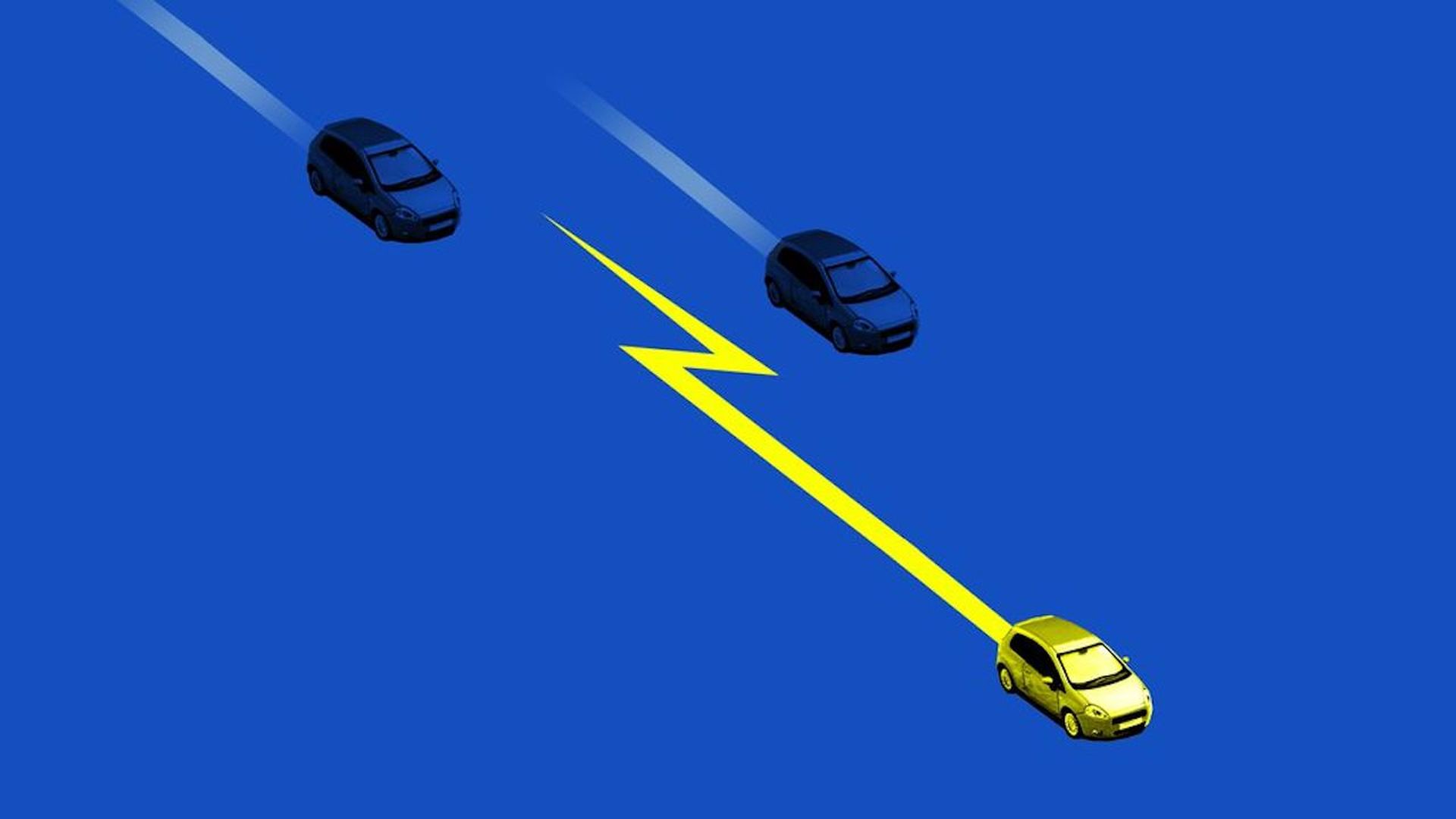GM vs. Ford on electrified AVs
Add Axios as your preferred source to
see more of our stories on Google.

Illustration: Lazaro Gamio/Axios
General Motors is laying down huge, simultaneous bets on electric cars and self-driving technology, a strategic gamble based on its belief that future automated vehicles will run only on electricity.
Why it matters: It's a risky bet that few can stomach, especially if EVs and AVs are slow to be accepted by consumers. Other carmakers, like Ford, see near-term limitations to battery-electric AVs and favor a more measured approach.
Between the lines: GM believes both technologies are approaching a tipping point and hopes they will propel it to the forefront of a massive industry shift toward shared, self-driving electric cars.
- "The only way to lead in either one is to go heavy and hard in both of them," said Doug Parks, GM VP for autonomous and electric vehicle programs.
The big picture: Automakers are split on the path to electrification, the Wall Street Journal reports.
- Toyota and Ford are rolling out more hybrid gas-electric models as part of a gradual shift toward fully electric cars. They are both heavily invested in hybrid tech.
- GM and Volkswagen see no need for hybrids as a technology bridge and are concentrating instead on all-electric models. They also need to defend their strong positions in China, where they face government mandates to sell more zero-emissions vehicles.
What they're saying: The companies' views on self-driving technology are also influencing their strategies toward electrification.
GM says all-electric autonomous cars have an advantage over hybrid- and gasoline-powered ones.
- They're ideal for dense cities that need solutions for congestion and pollution.
- AVs require a lot of electrical power to run their advanced sensing and computer hardware.
- An all-electric AV is more responsive so it can make decisions and complete maneuvers — like navigating around a double-parked car — more quickly.
Ford sees practical issues that favor hybrid powertrains for AVs for the time being.
- Building the necessary charging infrastructure will add to the already capital-intensive challenge of developing AV technology and operations.
- Until battery technology improves, an AV's power-hungry computers (along with air conditioning and entertainment systems) will deplete more than half the range of a battery-electric vehicle.
- If cars are sitting on chargers, they aren't making money.
- Fast-charging is needed to run an AV fleet, but Ford says repeated use will degrade the battery's lifespan. (GM says this isn't a concern.)
The bottom line: "We all want to transition to BEVs eventually, but we also need to find the right balance that will help develop a profitable, viable business model," said Sherif Marakby, president and CEO of Ford Autonomous Vehicles LLC.
